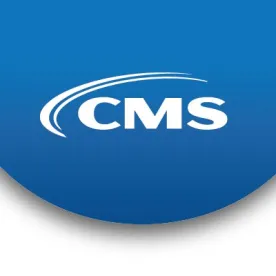On June 3, 2020, the Centers for Medicare and Medicaid Services Innovation Center (CMMI) released a blog post and comprehensive table detailing new flexibilities and adjustments to CMMI models intending to address the current COVID-19 health emergency. The announcement comes after much speculation among CMMI model participants as to how 2020, and the COVID-19 health emergency would be treated.
Recognizing that the COVID-19 emergency presents unprecedented challenges that require increased flexibility, CMMI has made changes that it states are designed to continue sufficient financial incentives, minimize reporting burdens, decrease risk to model participants, and limit delays in new model implementation. The full table of CMMI flexibilities can be accessed here, and the flexibilities fall into three categories: financial methodology changes, quality reporting changes, and model timeline changes. Overall, the updates give providers flexibility to put risk on hold (though it must include upside and downside risk), and push out the time frames on several models to account for the disruption. See below for specific examples of changes made.
The proposed changes come at a critical time, as health care providers are slowly beginning the path to recovery while at the same time preparing for potential COVID-19 resurgence in the fall. The COVID-19 health emergency has tested alternative payment models and exposed their weaknesses. Many providers are struggling to stay solvent with the suspension of non-emergent procedures, a sudden shift to a telehealth focused care delivery model, and a population unwilling to seek care for fear of contracting COVID-19, and their ability to bear risk for the care of patients up in the air. Furthermore, providers are being forced to explore new pathways to reach their patients, in order to meet quality metrics that may not make sense in the current environment. Commercial payers are also trying to determine how to address 2020 performance in their alternative payment model contracts, whether through the use of prior year performance results, revised quality metrics, or program suspension. Many will likely follow the path of CMMI now that it has released its proposal. As providers decide how they will navigate their participation in CMMI models, and whether they can continue to participate in light of the current environment, so too will commercial payers be forced to renegotiate their arrangements with providers.
Some specific examples of changes in the chart released include:
Financial Methodology Changes
-
Bundled Payments for Care Improvement Advanced Model: CMMI is allowing the option for participants to eliminate risk (both upside and downside) by excluding Clinical Episodes from reconciliation for year 2020. For those participants that choose to retain risk, participants may exclude certain Clinical Episodes with a COVID-19 diagnosis during the episode from reconciliation.
-
Comprehensive Care for Joint Replacement Model: Remove downside risk by capping actual episode payments at the target price for certain episodes during the emergency period. CMMI will also extend the appeals timeline for years 3 and 4 from 45 days to 120 days.
-
Oncology Care Model: Practices can elect to forgo upside and downside risk for performance periods affected by the COVID-19 public health emergency. For those practices that elect to retain risk, practices may exclude COVID-19 episodes from reconciliation for those performance periods.
-
Medicare ACO Track 1+ Model: Episodes of care for treatment of COVID-19 will be removed. The Medicare Shared Savings Program Extreme and Uncontrollable Circumstances policy applies to 2020 financial reconciliation.
Quality Reporting Changes
-
Oncology Care Model: The following reporting requirements are now optional for affected performance periods: 1) aggregate-level reporting of quality measures, and 2) beneficiary-level reporting of clinical and staging data. CMMI also removed the requirement for cost and resource utilization reporting and practice transformation plan reporting in July/August 2020.
-
Medicare ACO Track 1+ Model: The Medicare Shared Savings Program Extreme and Uncontrollable Circumstances policy will apply to 2019 and 2020 reporting.
-
Home Health Value-Based Purchasing Model: Model data submission requirements will be aligned with extensions or exceptions granted for the Home Health Quality Reporting Requirements during the COVID-19 emergency. CMMI will grant exceptions to the New Measures data reporting requirements during the public health emergency.
Model Timeline Changes
-
Comprehensive Care for Joint Replacement Model: Extension of performance year 5 through March 2021.
-
Direct Contracting (Global and Professional) Model: The start of the first performance period for Cohort #1 will be delayed to April 1, 2021. CMMI will create an application cycle during 2021 for a second cohort to launch January 1, 2022.
-
Oncology Care Model: The model is extended for an additional year through June 2022.
-
Medicare ACO Track 1+ Model: Participants may voluntarily extend their agreement for year one through December 2021.
CMMI is scheduling model specific stakeholder calls over the coming weeks to allow stakeholders to ask questions.




 />i
/>i

